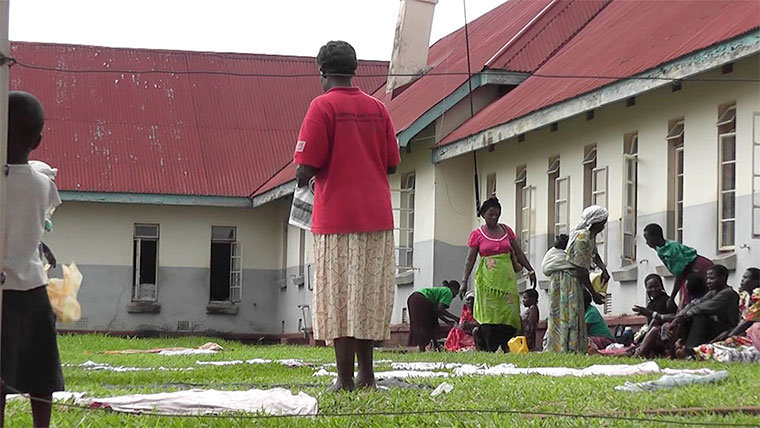-
On World Malaria Day experts argue 2.1 million lives could be saved and 658 million cases averted by 2040 if we accelerate the production of the next generation of malaria prevention tools
-
Concern by experts that disease is being overshadowed by other illnesses, including coronavirus, despite it still affecting almost half of the world’s population
-
Double danger predicted for Africa as both COVID-19 and Malaria could peak in coming months – experts say world needs to redouble efforts against both killers
Ahead of World Malaria Day on April 25, experts have revealed that 2.1 million deaths could be avoided over the next 20 years if the world commits to fighting a historic killer.
Malaria is a preventable and treatable disease that every decade kills over 4.3 million people yet remains, in many regions of the world, a major public health problem. It affects 91 countries and almost half the world’s population, about 3.2 billion people, are at risk of the disease.
Whilst many countries have eliminated malaria, most recently Algeria and Argentina in 2019, many are still under threat even though the technology exists to end this deadly disease. Landcent, a health innovation company leading the fight against malaria globally, is the only company in the world to have in its development pipeline all three malaria prevention technologies (preventive pill, next-generation bed net and indoor residual spray) and their team of industry-leading experts are concerned about what’s in store for some of the world’s poorest nations.
During the current COVID-19 pandemic, things are set to reach unthinkable levels as those in malaria struck countries will enter double danger as many experts are predicting that COVID-19 and malaria could peak in Africa at the same time. With this in mind, and the world’s attention now on coronavirus, it’s more important than ever that there is an effective response to tackling malaria, which remains the bigger killer.
Landcent is pioneering in developing the next generation of malaria prevention products. Their next generation bed net technology harnesses an existing WHO-approved chemical compound within a patented innovative microencapsulation technology that releases the chemical slowly over a long period of time. This means that the chemical is safe to use in bed nets – even if a child sucks on the material, or it comes into contact with skin.
This patented microencapsulation technology, a significant breakthrough in the world of malaria prevention, will dramatically accelerate the goal of a malaria-free world. What’s more, because the chemical has not previously been widely used, mosquitoes have not yet developed a widespread resistance to it. This same technology is also used in Landcent’s indoor residual spray which lasts 17 months – over twice as long as existing sprays.
Landcent has also developed an anti-malarial preventive pill which is safe enough to be taken by pregnant women, children and infants – the most at risk population contributing to over 80% of malaria cases and deaths annually. The pill is also highly cost efficient for healthcare systems in the developing world as a strip of four pills to be taken over three days costs just €1 and gives 30 days of protection.
Arun Prabhu Stanley, Co-Founder and Vice President of Landcent comments: “The developed countries of the world have adequate health resources to fight diseases that confront them – case in point, the incredible speed at which we are working on vaccines for COVID-19. However, it isn’t the same with Sub-Saharan Africa, which still bears the largest burden of malaria morbidity, of over 90%. 1,200 people a day are dying from this entirely preventable disease. This means that the world would have to consider a more equitable distribution of its resources.”
He continues: “Our goal is to consign malaria to the history books, alongside other infectious diseases – which will break the cycle of poverty for more than a billion people. The technology is here, now we just need to make it happen”.
Landcent, which has received a €1.2 million grant from the Gates Foundation, is entering an investment round to raise €2 million to complete the final two years of a regulatory ten-year-long product trial from the World Health Organisation, for their innovative indoor residual spray.
According to the World Health Organization’s latest World malaria report, malaria is on the rise in many countries with a high burden of diseases and the COVID-19 pandemic has complicated the picture even further. With 20 years remaining in reaching the WHO’s target of a malaria free world by 2040, it’s time to act now to bring about change.
Check also;
- Major Coronavirus Catastrophe On The Horizon In Sub-Saharan Africa
- Can You Be Infected With COVID-19 Twice? Medical Experts Speak
- Americans Are Protesting Against Coronavirus lockdown, They Want To Get Back To Work
Please use the button below to contribute to Newslex Point, Inc. using a credit card or via PayPal.

 Newslex Point News in Uganda, Uganda news
Newslex Point News in Uganda, Uganda news












